In the run-up to National First-Generation College Day, students and faculty reflect on what it means to be the first in their families to seek a four-year degree.
Words and pictures by Ryan Mastrangelo / November 2019
Being first isn’t always easy — especially when it comes to being the first in your family to attend college. Without growing up hearing mom, dad, or an older sibling tell tales of how it all works, first-generation-to-college students truly are pioneers, going bravely — if not boldly — where no one in their families has gone before.
Nearly half of all students at the University of Maine at Farmington are first-gen — a remarkably high percentage, especially among liberal arts colleges. But this has always been so at UMF, where faculty and staff have long recognized and celebrated the courage and aspirations first-gen students bring to our community and classrooms.
In the runup to National First-Generation College Day on November 8, we asked students and faculty to reflect on the pride and the pressures of being the first in their families to seek a four-year degree. What they say might surprise you — or it might confirm your own first-gen perspective as you paved the way for siblings and successive generations in your family.
Ben Toribio ’20: Calling the shots in college, thanks to Upward Bound
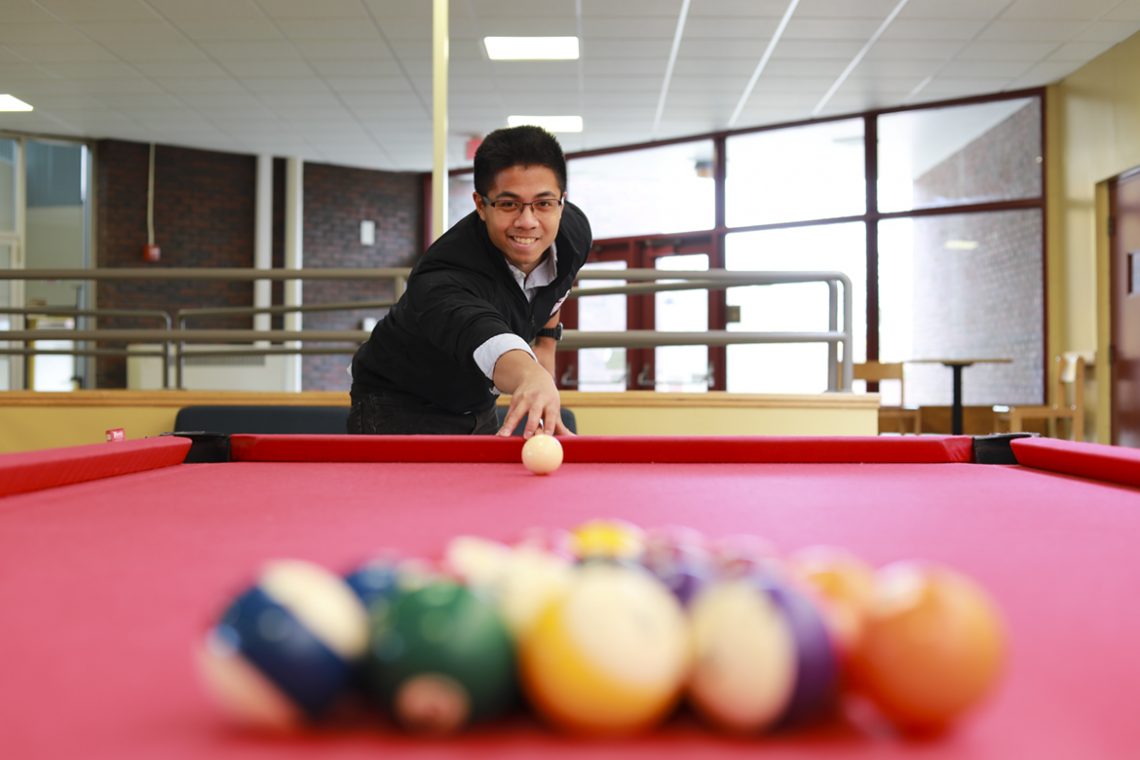
Many first-gen students point to a defining moment, person, or program that helped light the way in their pursuit of higher education. Ben Toribio ’20, a secondary education-math major from Athens, Maine, says his participation in Upward Bound — the federally funded program that raises the aspirations and academic readiness of high-potential high school students nationwide — was a beacon on his path to Farmington.
“For me personally, Upward Bound is what really moved me forward. It’s one thing to be a decent student and just follow the steps of going to college, getting a job, and so on and so forth. But Upward Bound not only guided me to college, it also showed me what I wanted to do with my life: become a teacher, which is how I ended up at Farmington,” says Toribio.
“While my primary role will be to teach students math, I really want to do more than that. My ultimate goal is to see other students light up and see their futures ahead for themselves; to give them the same resources, guidance, and support I had so that they too can move forward.”
Associate Professor of Psychology Natasha Lekes: Privileged to support other first-gen students
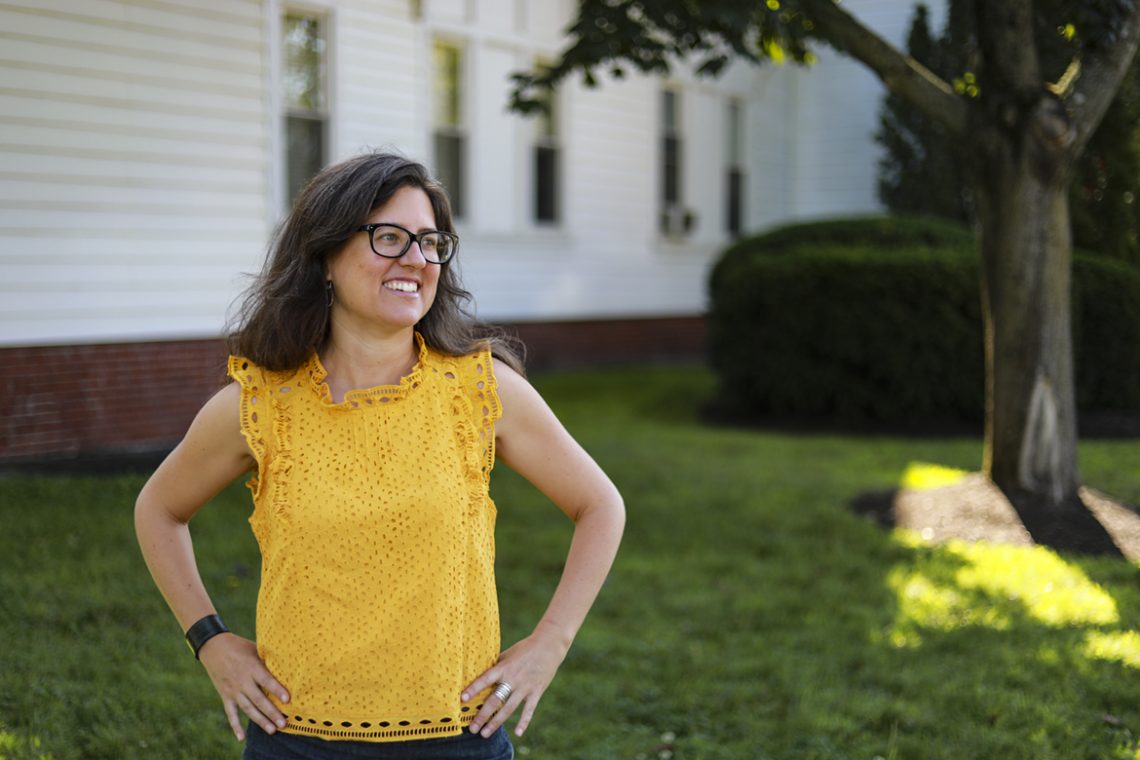
“When I was 12 years old, as we visited the campus of a large, prestigious university, my mother casually commented, ‘Maybe you’ll go here one day.’ I was shocked by her vision for my future,” says Lekes, who attended McGill University as an undergraduate.
“I now see that moment as the beginning of my academic path that has led me to become a professor of psychology at UMF, complete with the privilege of supporting other first-gen college students and sometimes offering them an idea for a future that they may not have imagined.”
Cameron McLaughlin ’23: Doing his best for family and friends back home
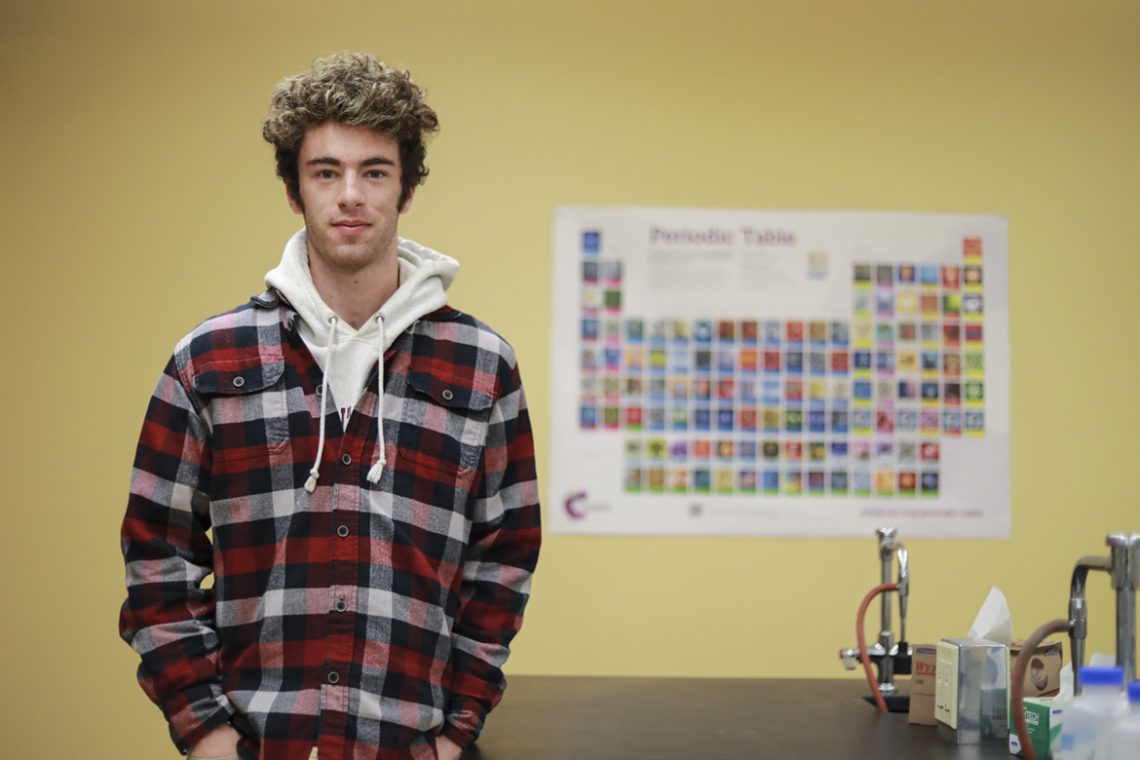
“I want to prove to myself and to the future generations that you can do whatever you want as long as you put everything you have into what you’re passionate about. Having the first-gen label doesn’t mean you have to know what your future holds — that’s what college is for,” says Cameron Mclaughlin ’23, an environmental policy and planning major from Panton, Vt.
“Farmington has been so amazing for my whole family’s college experience. It’s showed me that this campus and community really cares. And, it’s inspired me to do my best for my friends and family back home.”
Assistant Professor of History Michael Schoeppner: Compelled to address the ‘mysteries of college’
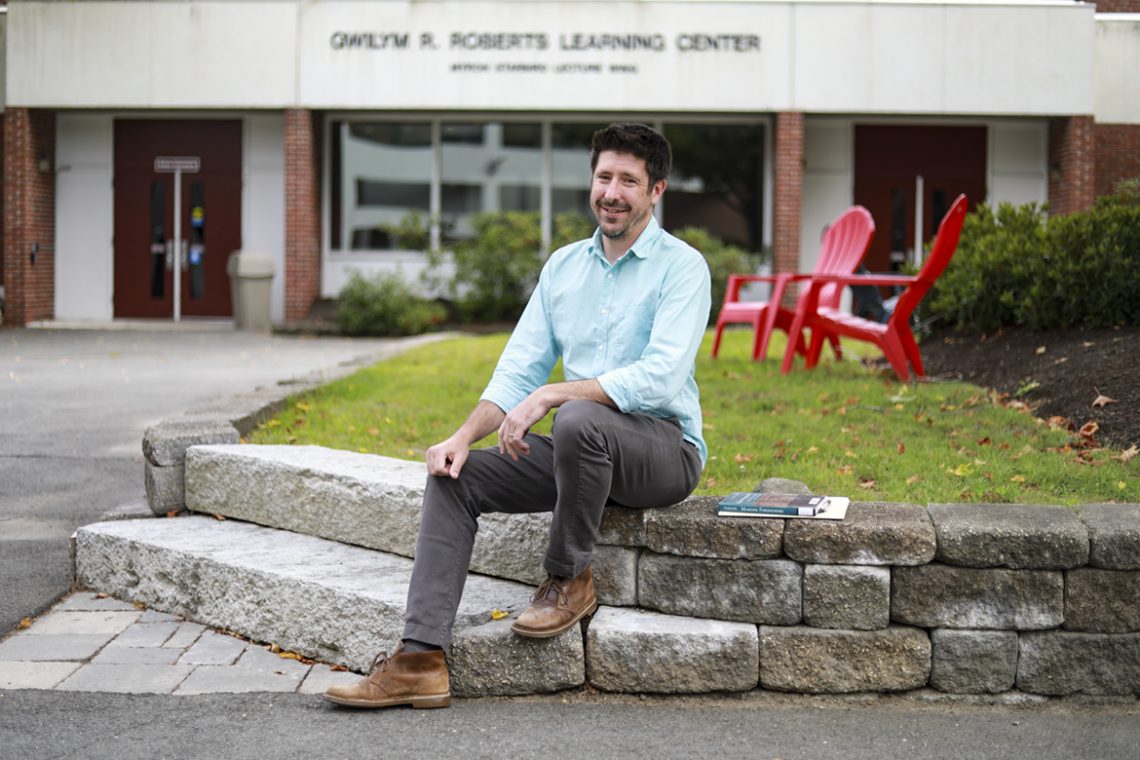
“When I arrived for my first semester at college, I could not remember where the dining hall was. For three whole months, I did not eat in the dining hall once. I had no clue where it was located, and I was terrified that if I asked someone, I would look stupid, or worse, like I did not belong. I ate a lot of ramen noodles and missed a few meals, all because I had no idea what information students were expected to know,” says Michael Schoeppner, assistant professor of history, who attended the University of South Florida for his undergraduate degree.
“Fast forward 25 years, and I am now a professor at a school that enrolls a lot of first-gen students. I am compelled to address first-year students about the mysteries of college. I begin all of my lower-level courses with the story I just shared. I want them to know that feeling uneasy, unprepared, and terrified of looking out-of-place is normal. I’ve fielded questions about financial aid, meal plans, the bookstore, dorm-bathroom etiquette, campus geography, and dozens of other topics. I often don’t know the answers, but I can and do point students in the right direction.
“The hope is to make comfortable those students who are overwhelmingly predisposed to be uncomfortable. I have all semester to teach history,” says Schoeppner. “During the first week or so, I tend to focus instead on lessening student anxiety. Less anxious students tend to be much better students, and more importantly, healthier people.”
Shukri Abdirahman ’22: ‘Paving the way’ for her sisters
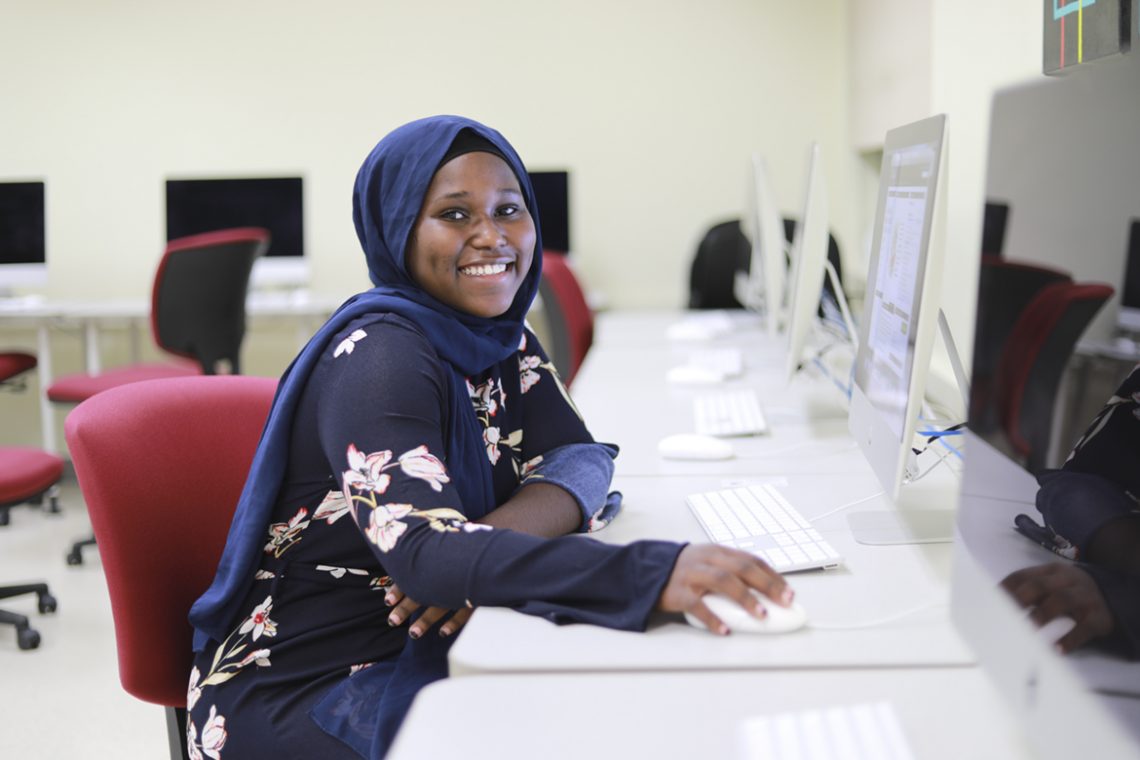
“I make sure I do whatever I do with passion and my sisters look up to me for my ambition. I’m paving the way for them,” says Shukri Abdirahman ’22, an international and global studies major from Lewiston, Maine.
“My parents didn’t struggle in a refugee camp for 20 years for no reason. They want my sisters and me to succeed. I know where I come from; that’s why education is the most important thing in my life. They made the American dream an immigrant’s dream.”
Associate Professor of Early Childhood Education Patty Williams: Always advocating for students like herself
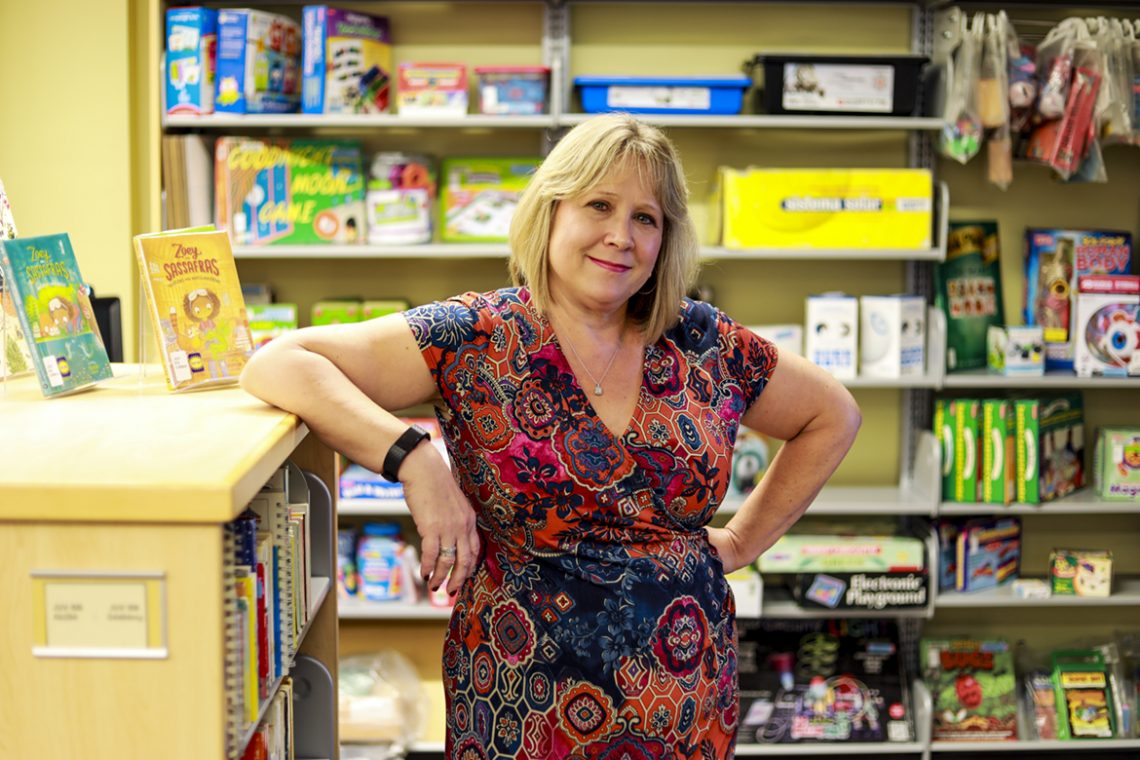
“I was raised by a father who was a tradesman and a mother who had been raised in a children’s home and the foster care system and had never graduated from high school,” says Williams. “Like many families, mine had its challenges, which left their mark on me: mental health issues, substance abuse issues, unsteady employment, and financial problems that sometimes made life very complicated.
“I knew I needed to go to college to make a better life for myself. When I arrived at the University of Rochester in Rochester, New York, as a freshman, I couldn’t help feeling that I wasn’t good enough or smart enough to be there. In my mind, I didn’t feel like I had as good a preparation for college and the advantages other students had, like a computer — a rarity in the 1980s — and the freedom to just study without working on campus like I had to, holding down three different jobs at one point.
“But, I stuck it out. I got involved on campus in musical groups and service organizations. I met others like me — and not like me. These experiences informed my own teaching as a professor. I never forget that there could be kids in my classrooms that could be experiencing college life the way I did. And I always want to advocate for them.”
Kiya Oakstone ’23: Forever proud to be first-gen
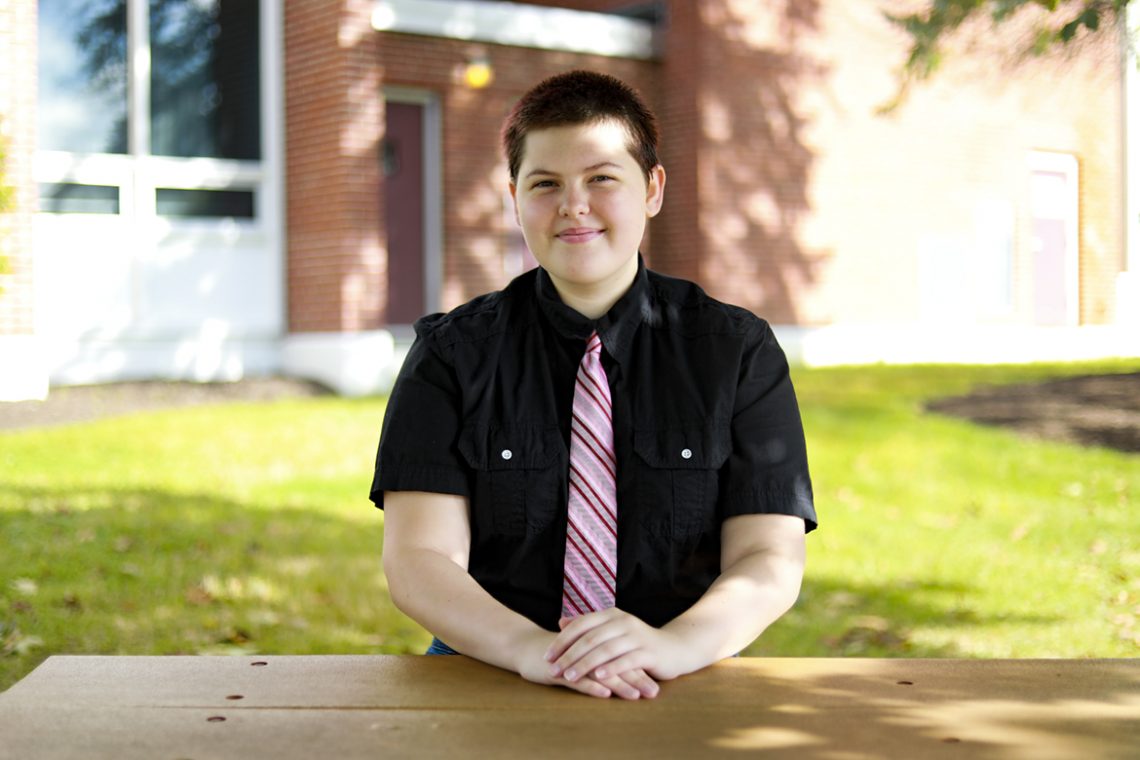
“I’ve given some thought to what I could say about being first-gen, and all I can think of is how proud I feel. Being a first-gen college student has given me something to dedicate myself to, and it’s motivated me to try new things,” says Kiya Oakstone ’23, a K-12 world language major from Dedham, Maine.
“Coming to Farmington, I knew there were so many first-gen students, and it made me feel not so alone in not knowing how to do anything. Knowing many of us have no idea what we’re doing, everyone at UMF has been so willing to help. Being first-gen is something I will always treasure, and something that will make my family proud.”

